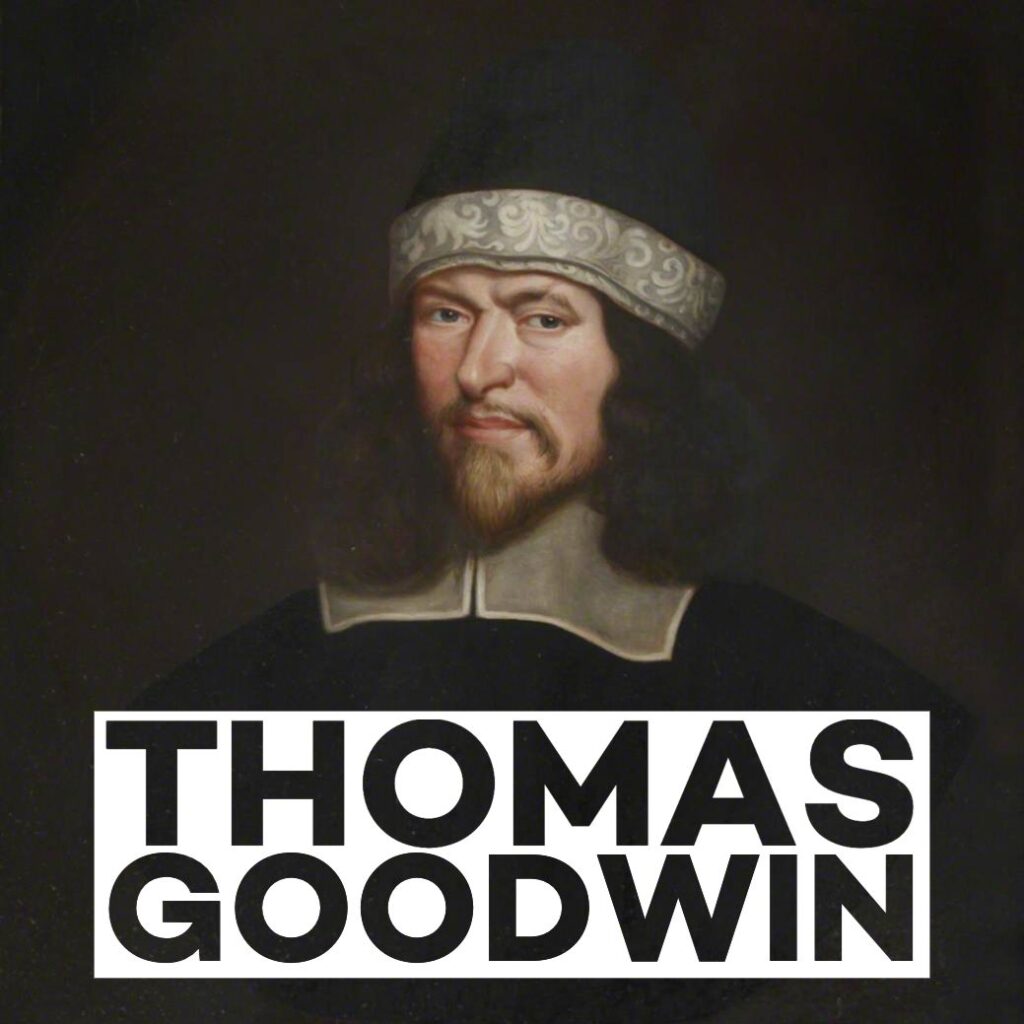Thomas Goodwin was born on October 5, 1600, in Rollesby, Norfolk, England, and died on February 23, 1680, in London. Goodwin was a powerful Puritan who was a chaplain to Oliver Cromwell and friends with John Owen. With Owen and with other like-minded separatists, he helped draft the Savoy Declaration, a confession of faith for the Congregationalists, a group of independent Presbyterians.
Goodwin was an intellectual, he earned his B.A. from Christ’s College, Cambridge at the age of 16 and earned his M.A. at the age of 20. Even though he was a gifted young man, he had much to learn. During his time in school, he wanted to become a “celebrity preacher.” Goodwin loved the applause and it was one of his “master lusts” that he was always mindful of and constantly had to mortify. During the time of his studies, he listened to the teachings of Richard Sibbes, John Preston, and other Puritan lecturers. At the age of 32, he became the vicar of Trinity Church. During this time, Sibbes instructed Thomas Goodwin to “preach the gospel and the free grace of God in Christ Jesus.” Which is what he did and he grew a newfound zeal for proclaiming the Gospel.
Due to the pressure of Archbishop Laud imposing high church traditions upon all churches, after about two years of being the vicar at Trinity Church, Goodwin became dissatisfied with the terms of conformity and resigned from his position in favor of Richard Sibbes. Goodwin left England and went to Holland. While he was there, he learned more and embraced the congregational form of church governance establishing himself as a Separatist preacher. Due to the tension between those who embraced the Anglicanism forced on the church and those who disagreed, historians note that while it would be easy for Goodwin to be bitter and quarrelsome with conformists, he managed much respect across all spectrums of the theological debate of the state-run church or separatists. “Almost uniquely, in an age of constant and often bitter debate, nobody seems to have spoken ill of Goodwin.”
In the 1650s Thomas Goodwin became the President of Magdalen College, and it was noted that he held weekly meetings at his house independent of the school and would engage with students. The common question that would be asked of his students was their conversion story or how they stood with the Lord. Goodwin had some funny quirks, he was a man who loved his velvet cassock and nightcaps and wore them frequently (see picture), so when students saw a man wearing a nightcap around campus, they knew it was Goodwin coming and to be prepared for one of his two questions.
In the 1660s, with Charles II’s government clamping down on ministers again, Goodwin left Magdalen College and took several ministers with him to develop an independent congregation in London. The last twenty years of his life were spent in the pastorate, writing treaties, and studying. In 1680, at the age of 80, he succumbed to a fatal fever.
There are many powerful quotes one could pull from Thomas Goodwin, but one that would summarize his ministerial style would be, “Glory in nothing, but only in this, that you are in Christ. For God chose you in him; the being you had was in him before the world was.”
Bonus quote:
“God works with power, and can make the unwilling willing; if He undertakes the conversion of a soul, it will be converted. All the pious workings of our heart towards God are the fruit and consequence of the powerful working of His grace in us.” – Thomas Goodwin
To learn more about Thomas Goodwin, read The Heart of Christ in Heaven towards Sinners on Earth.

